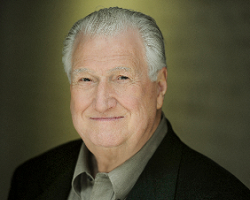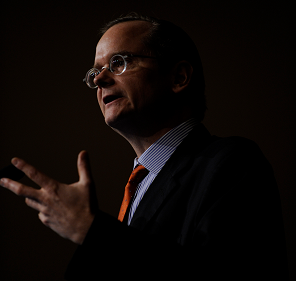Election Reform: Attacking with Today’s Tools
 Virgil Scudder, President, Virgil Scudder & AssociatesIf you went out to vote for Donald Trump in California or Hillary Clinton in Texas last November, you might as well have stayed home. Your vote didn’t count.That’s the position of Harvard law professor and Constitutional scholar Lawrence Lessig. And, he has an ambitious, low budget plan to fix the problem. The key elements are social media and the courts.Why didn’t those California or Texas votes mean anything? The culprit is the “winner take all” system, says Lessig, in which all of a state’s Electoral College votes go to the popular vote winner in that state, even if that person wins by only one vote. Forty-eight of the 50 states use that system.So, Trump never had a chance of getting California’s electors and Clinton’s cause was equally hopeless in Texas. However, the real estate mogul’s narrow win in Michigan got him all 16 of that state’s votes and Clinton’s squeaker in Minnesota netted her all ten votes. It’s not hard to conclude there is something wrong with this picture, especially if you voted for the loser in one of those two states.Two of the last three presidents have taken office by winning in the Electoral College while losing the popular vote. In 2016, Hillary Clinton garnered almost three million more votes than Donald Trump, but it is he, not she, who sits in the White House.
Virgil Scudder, President, Virgil Scudder & AssociatesIf you went out to vote for Donald Trump in California or Hillary Clinton in Texas last November, you might as well have stayed home. Your vote didn’t count.That’s the position of Harvard law professor and Constitutional scholar Lawrence Lessig. And, he has an ambitious, low budget plan to fix the problem. The key elements are social media and the courts.Why didn’t those California or Texas votes mean anything? The culprit is the “winner take all” system, says Lessig, in which all of a state’s Electoral College votes go to the popular vote winner in that state, even if that person wins by only one vote. Forty-eight of the 50 states use that system.So, Trump never had a chance of getting California’s electors and Clinton’s cause was equally hopeless in Texas. However, the real estate mogul’s narrow win in Michigan got him all 16 of that state’s votes and Clinton’s squeaker in Minnesota netted her all ten votes. It’s not hard to conclude there is something wrong with this picture, especially if you voted for the loser in one of those two states.Two of the last three presidents have taken office by winning in the Electoral College while losing the popular vote. In 2016, Hillary Clinton garnered almost three million more votes than Donald Trump, but it is he, not she, who sits in the White House. Professor Lessig claims the “winner take all” policy is unconstitutional because it violates the 14th Amendment guarantee of one person, one vote.It also skews how campaigns are conducted, he adds, as candidates focus only on “flip” states. In the 2016 election, 14 states got 99% of the presidential campaign spending and received 95% of the campaign stops. Two-thirds of the campaign events took place in only six states. Most of the public was essentially left sitting on the sidelines at a critical time in our history.Says Lessig, “Two-thirds of Americans are essentially shut out of the presidential election process.”But, how do you overturn a deeply-embedded, if flawed, system without a Constitutional amendment that nobody thinks has a chance of happening?Lessig is banking on two of the most commonplace tools of our day: lawsuits and social media.His group plans to sue on behalf of an aggrieved voter in each party, a Republican in a blue state and a Democrat in a red state, claiming they are being deprived of their Constitutional rights. The lawsuits would seek to require each state to use proportional representation in choosing electors, banning “winner take all.” His hope is that the U.S. Supreme Court will decide the issue (in his movement’s favor, of course) before the 2020 Presidential election.To mount and coordinate the charge, he has initiated a project called EqualVotesUS (www.equalvotes.us).Professor Lessig’s promotional and financial strategy is right out of the social media-heavy playbook pioneered by Barack Obama and Bernie Sanders. It includes:
Professor Lessig claims the “winner take all” policy is unconstitutional because it violates the 14th Amendment guarantee of one person, one vote.It also skews how campaigns are conducted, he adds, as candidates focus only on “flip” states. In the 2016 election, 14 states got 99% of the presidential campaign spending and received 95% of the campaign stops. Two-thirds of the campaign events took place in only six states. Most of the public was essentially left sitting on the sidelines at a critical time in our history.Says Lessig, “Two-thirds of Americans are essentially shut out of the presidential election process.”But, how do you overturn a deeply-embedded, if flawed, system without a Constitutional amendment that nobody thinks has a chance of happening?Lessig is banking on two of the most commonplace tools of our day: lawsuits and social media.His group plans to sue on behalf of an aggrieved voter in each party, a Republican in a blue state and a Democrat in a red state, claiming they are being deprived of their Constitutional rights. The lawsuits would seek to require each state to use proportional representation in choosing electors, banning “winner take all.” His hope is that the U.S. Supreme Court will decide the issue (in his movement’s favor, of course) before the 2020 Presidential election.To mount and coordinate the charge, he has initiated a project called EqualVotesUS (www.equalvotes.us).Professor Lessig’s promotional and financial strategy is right out of the social media-heavy playbook pioneered by Barack Obama and Bernie Sanders. It includes:
- Targeted emails to supporters of previous Lessig projects
- A deluge of tweets and retweets
- A Facebook page
- A Facebook live session
- An interactive Reddit AMA session (a tool of former President Obama, Bill Gates, and Donald Trump)
- And, substantial use of traditional media weapons as television, radio, podcast, print, and web broadcasts and interviews along with news releases.
The initial budget is low, extremely low for an effort to overturn the way we elect presidents, only $250,000. The organization hopes to raise the money through crowdfunding And it’s off to a rousing start. The group raised $35,000 on the first day alone (September 14), 14% of the total goal, and four days later, the campaign had achieved 20% of its goal. And, it’s primarily grass roots money, a la Sanders. The average contribution was $55.00.Is Lessig a sore loser wanting to replay the 2016 election? No, he says, adding that Clinton would not necessarily have won the election if one person, one vote had been in effect since a lot of other factors would also have been at play. For one thing, it’s unknown how many more or fewer people, and which people, would have participated if they knew their votes could affect the race. It’s hard to count stay-at-homes and how they might have voted.To Lessig, this is not about 2016. It’s about 2020 and beyond. It’s about guaranteeing a fundamental right of every citizen in a democratic society. And, this highly-respected Harvard educator and legal scholar thinks he has the case to pull it off. [author]About the Author: Often referred to as “The Dean of Media Trainers,” Virgil is considered one of the world’s foremost communication experts. In a 30-year career that has covered 26 countries on five continents, he has provided coaching and counsel to heads of some of the world’s largest corporations and government leaders. Virgil is a prolific writer and speaker. His book, World Class Communication: how great CEOs win with the public, shareholders, employees, and the media, written with his son Ken, was named one of the 25 best business books of 2012. His column, In the C-Suite, appears in every quarterly issue of the Public Relations Strategist and is read by leaders of major public relations agencies and global heads of public relations of large companies. He has written or been featured in articles that have appeared in The New York Times, The International Herald Tribune, Reuters, Investors Business Daily, and numerous professional publications. Two of his speeches have been reprinted in the prestigious Vital Speeches of the Day. Prior to founding Virgil Scudder & Associates in 1990, Virgil headed the media training units of two of the world’s largest public relations firms, Hill & Knowlton and Carl Byoir & Associates. Earlier, he was an award-winning news broadcaster at major radio and television networks and stations in New York City. He was a first-night Broadway drama critic for six years during that period, broadcasting reviews on NBC’s all-news radio network and all-news WINS radio. [/author]

